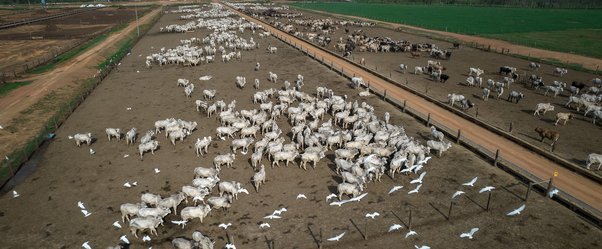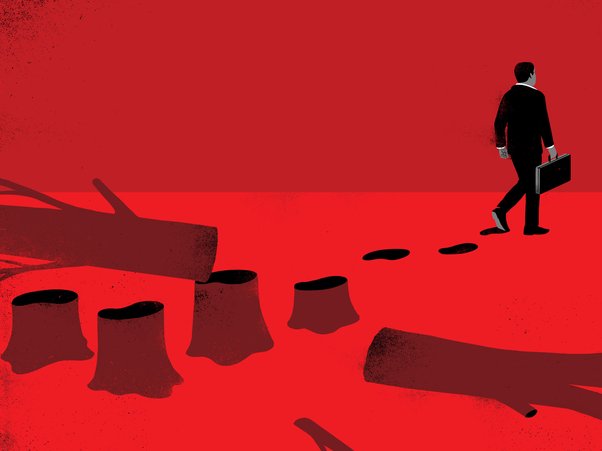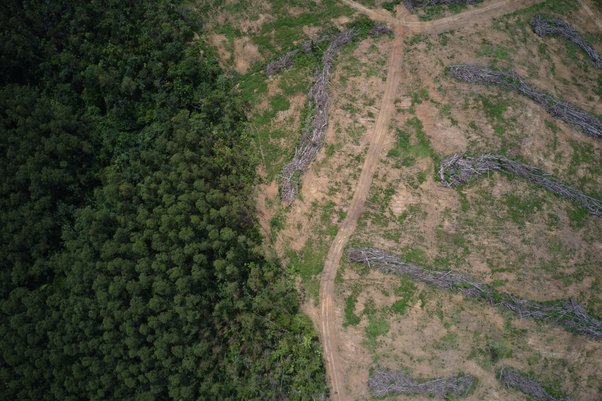Horrifying footage of the burning Amazon rainforest this summer shocked us all. It’s become clearer than ever that as the climate emergency deepens, protecting our forests is critical
Yet, so often, the coffee we drink and the food we consume is born from this reckless destruction of forests.
Between 2001 and 2015, nearly 75 million hectares of tree cover was destroyed. The main driver? The production of commodities such as soy and palm oil.
And in the Amazon alone, we know that an epic 80% of current destruction is driven by the cattle sector, where rainforest is deliberately cleared so that cows can be reared in its place. There are approximately 85 million cowsin the Brazilian Amazon, or around four cows per inhabitant in the region.
This new beef boom is a major threat to this climate-critical forest and carbon sink. As companies and investors look to exploit land for profit, not only are tropical trees which have stood for centuries destroyed, but homes and livelihoods of indigenous communities and land and environmental defenders damaged.
Just a few weeks ago, I visited the Amazonian state of Pará, in Brazil, where I witnessed first-hand how companies could be doing more to curb deforestation, as they drive to make profit at any cost.
I attended a high level meeting organized by the Federal Prosecutor’s Officewhere the authorities made clear: there isn’t one single company buying cattle from the Brazilian Amazon that is able to affirm their supply chain is deforestation free.
This includes major beef traders like JBS S.A., Marfrig Global Foods and Minerva Foods, who account for more than 45% of the Brazilian Amazon’s cattle-slaughtering capacity.
All three have committed to measures that should help protect the forest. Yet their supply chain is tainted by deforestation, repeatedly exposed by Brazilian civil society, and now confirmed by the Federal Prosecutor’s Office.
This is a shocking revelation: that much of the beef exported out of Brazil or traded within it carries the real risk of Amazon destruction and environmental harm.
Yet, despite this, JBS, Marfrig and Minerva have been supported by some of the most famous names in finance, including Black Rock, Deutsche Bank and Bank of America – all of whom failed to ask enough questions and impose strict conditions about their exposure to deforestation.
In September, 244 other investors signed a statement calling on firms to protect the Amazon. Interestingly, these investors may soon face their first test – as the Brazilian Development Bank (BNDES) looks ready to sell a significant part of its shares in both JBS and Marfrig.
At this key moment in which financiers have the power to influence the activities of these companies so heavily linked to rampant deforestation, Global Witness needs your support.
We’re working hard to follow the money behind the climate crisis – and we need your help to hold financiers and the governments that regulate them to account.


